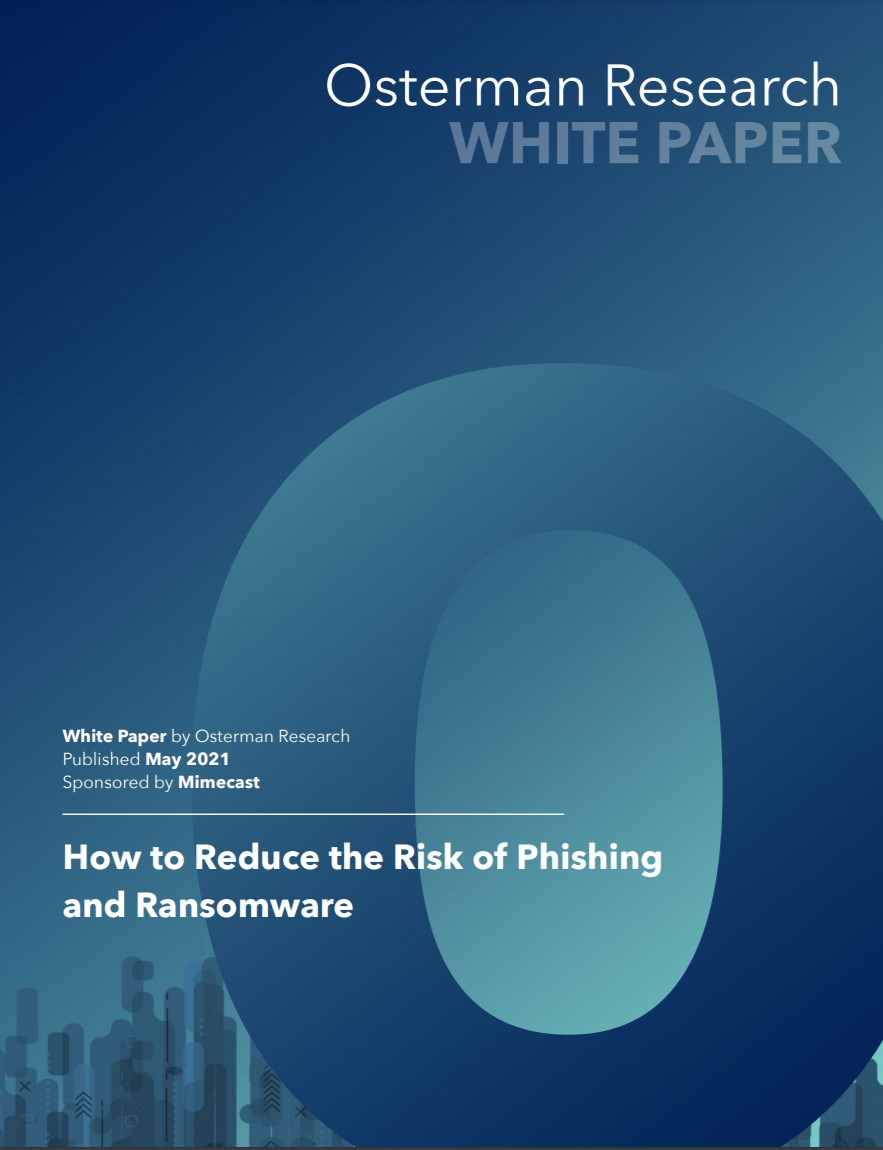Microsoft Exchange Servers are being used to distribute Qakbot malware
Exploiting an unpatched Exchange Server vulnerability and a less-than-foolproof malicious URL strategy is leading to mounting infections in businesses


Compromised Microsoft Exchange servers are being used to spread the SquirrelWaffle malspam campaign, according to security researchers.
Speaking to IT Pro, Amir Hadžipašić, CEO and founder of SOS Intelligence, said a vulnerability in Microsoft Exchange, left unpatched as of the last 12 October update, was being exploited using a method similar to ProxyShell - a recent exploit affecting Microsoft Exchange servers that afforded attackers remote code execution access.
Conversations held between SOS Intelligence and organisations who have fallen victim to the campaign confirmed Hadžipašić's suspicions that compromised Exchange servers were being used to launch the malspam campaign.
The new development is particularly concerning for businesses given the sophisticated nature of the attack. SquirrelWaffle hijacks inboxes and sends malicious emails in response to existing email chains, increasing the likelihood that a victim will click on a malicious link or open an infected file because it came from a trusted source. Analysis of victims' logs reveals ProxyShell exploitation leads to mail exporting with Microsoft Exchange Web Services (EWS), allowing it to send from existing chains.
"What is interesting about this particular campaign and is an important development is that all of the emails we observed originated from on-premise Microsoft Exchange Servers that appeared to be vulnerable to ProxyShell," Hadžipašić tosaid to IT Pro.
"Following an investigation of the sender mail servers all were confirmed (by http://Shodan.io) to be vulnerable, further discussions with a number of victims - who had confirmed to have been compromised by a ProxyShell type exploit and indeed were a source of these emails - confirms that Exchange servers and email threads were being 'hijacked' to deliver this malspam."
Another new development in the campaign, observed only in the past few days, is that the URLs in the malspam emails are now changing. Previous hyperlinks have been abandoned for non-hyperlinked, shortened URLs which lead to the download of a malicious payload such as Qakbot if followed.
Get the ITPro daily newsletter
Sign up today and you will receive a free copy of our Future Focus 2025 report - the leading guidance on AI, cybersecurity and other IT challenges as per 700+ senior executives
This opens up the campaign to an element of failure, given victims must manually copy and paste the URL into a browser in order for the malware to be dropped.
URLs have omitted the HTTP/HTTPS prefix to the link, removing the hyperlink and bypassing URL rewrite in the process, and this has led to an uptick in infections because it helps to evade email spam filters.
"Both of these factors increase the likelihood of success since they are social engineering a victim, who will receive an email apparently related to a topic discussed not long ago with the sender and secondly the link was sent in such a way as to bypass any URL rewrite protection mechanisms," said Hadžipašić.
"It is strongly suspected that this campaign is being orchestrated by the 'TR Distro Actor' / TA577 utilising compromised Exchange servers to send these malicious spam emails delivering via an Excel Spreadsheet the Qakbot," he added.
Speaking on the recent TLP Green discoveries, other security researchers, as well Hadžipašić, have warned of the severity of the situation. It is believed that Qakbot campaigns are closely linked to ransomware groups.
Businesses are advised to urgently patch their Exchange servers to Cumulative Update 22, at the very least, and prevent EWS exposure to the internet, most importantly.
IT Pro contacted Microsoft for comment but it did not reply at the time of publication.
SquirrelWaffle at a glance
Cisco Talos researchers published a report detailing the SquirrelWaffle campaign in late October 2021 and how it was infecting systems with a new malware family that has been seen infecting with increased regularity which "could become the next big player in the spam space".
RELATED RESOURCE

How to reduce the risk of phishing and ransomware
Top security concerns and tips for mitigation
The report notes that SquirrelWaffle provides attackers with a foothold onto victims' machines which then allows them to compromise the victim further and distribute further infections. Qakbot and the penetration testing tool Cobalt Strike were the common payloads the Cisco Talos team observed.
Infections were observed dating back to the middle of September with researchers observing email chains being hijacked in a way not dissimilar to the way Emotet spread before law enforcement intervened in the spread of the botnets.
In these hijacked emails, the researchers identify what they believed to be a degree of localisation taking place, since the emails largely matched the language and style used in the chains that were hijacked. The attack mainly targets English-speaking victims with less than a quarter of emails written in other languages.
While this a relatively new attack vector, the common malware payload, Qakbot, has been around for some time. Back in 2020, researchers discovered the link between Qakbot infections and distributions of DoppelPaymer - the ransomware used to target the likes of Newcastle University, Foxconn, and Compal.

Connor Jones has been at the forefront of global cyber security news coverage for the past few years, breaking developments on major stories such as LockBit’s ransomware attack on Royal Mail International, and many others. He has also made sporadic appearances on the ITPro Podcast discussing topics from home desk setups all the way to hacking systems using prosthetic limbs. He has a master’s degree in Magazine Journalism from the University of Sheffield, and has previously written for the likes of Red Bull Esports and UNILAD tech during his career that started in 2015.
-
 Third time lucky? Microsoft finally begins roll-out of controversial Recall feature
Third time lucky? Microsoft finally begins roll-out of controversial Recall featureNews The Windows Recall feature has been plagued by setbacks and backlash from security professionals
By Emma Woollacott Published
-
 The UK government wants quantum technology out of the lab and in the hands of enterprises
The UK government wants quantum technology out of the lab and in the hands of enterprisesNews The UK government has unveiled plans to invest £121 million in quantum computing projects in an effort to drive real-world applications and adoption rates.
By Emma Woollacott Published
-
 ‘Phishing kits are a force multiplier': Cheap cyber crime kits can be bought on the dark web for less than $25 – and experts warn it’s lowering the barrier of entry for amateur hackers
‘Phishing kits are a force multiplier': Cheap cyber crime kits can be bought on the dark web for less than $25 – and experts warn it’s lowering the barrier of entry for amateur hackersNews Research from NordVPN shows phishing kits are now widely available on the dark web and via messaging apps like Telegram, and are often selling for less than $25.
By Emma Woollacott Published
-
 Hackers are targeting Ivanti VPN users again – here’s what you need to know
Hackers are targeting Ivanti VPN users again – here’s what you need to knowNews Ivanti has re-patched a security flaw in its Connect Secure VPN appliances that's been exploited by a China-linked espionage group since at least the middle of March.
By Emma Woollacott Published
-
 Healthcare systems are rife with exploits — and ransomware gangs have noticed
Healthcare systems are rife with exploits — and ransomware gangs have noticedNews Nearly nine-in-ten healthcare organizations have medical devices that are vulnerable to exploits, and ransomware groups are taking notice.
By Nicole Kobie Published
-
 Alleged LockBit developer extradited to the US
Alleged LockBit developer extradited to the USNews A Russian-Israeli man has been extradited to the US amid accusations of being a key LockBit ransomware developer.
By Emma Woollacott Published
-
 February was the worst month on record for ransomware attacks – and one threat group had a field day
February was the worst month on record for ransomware attacks – and one threat group had a field dayNews February 2025 was the worst month on record for the number of ransomware attacks, according to new research from Bitdefender.
By Emma Woollacott Published
-
 CISA issues warning over Medusa ransomware after 300 victims from critical sectors impacted
CISA issues warning over Medusa ransomware after 300 victims from critical sectors impactedNews The Medusa ransomware as a Service operation compromised twice as many organizations at the start of 2025 compared to 2024
By Solomon Klappholz Published
-
 Broadcom issues urgent alert over three VMware zero-days
Broadcom issues urgent alert over three VMware zero-daysNews The firm says it has information to suggest all three are being exploited in the wild
By Solomon Klappholz Published
-
 Nakivo backup flaw still present on some systems months after firms’ ‘silent patch’, researchers claim
Nakivo backup flaw still present on some systems months after firms’ ‘silent patch’, researchers claimNews Over 200 vulnerable Nakivo backup instances have been identified months after the firm silently patched a security flaw.
By Solomon Klappholz Published